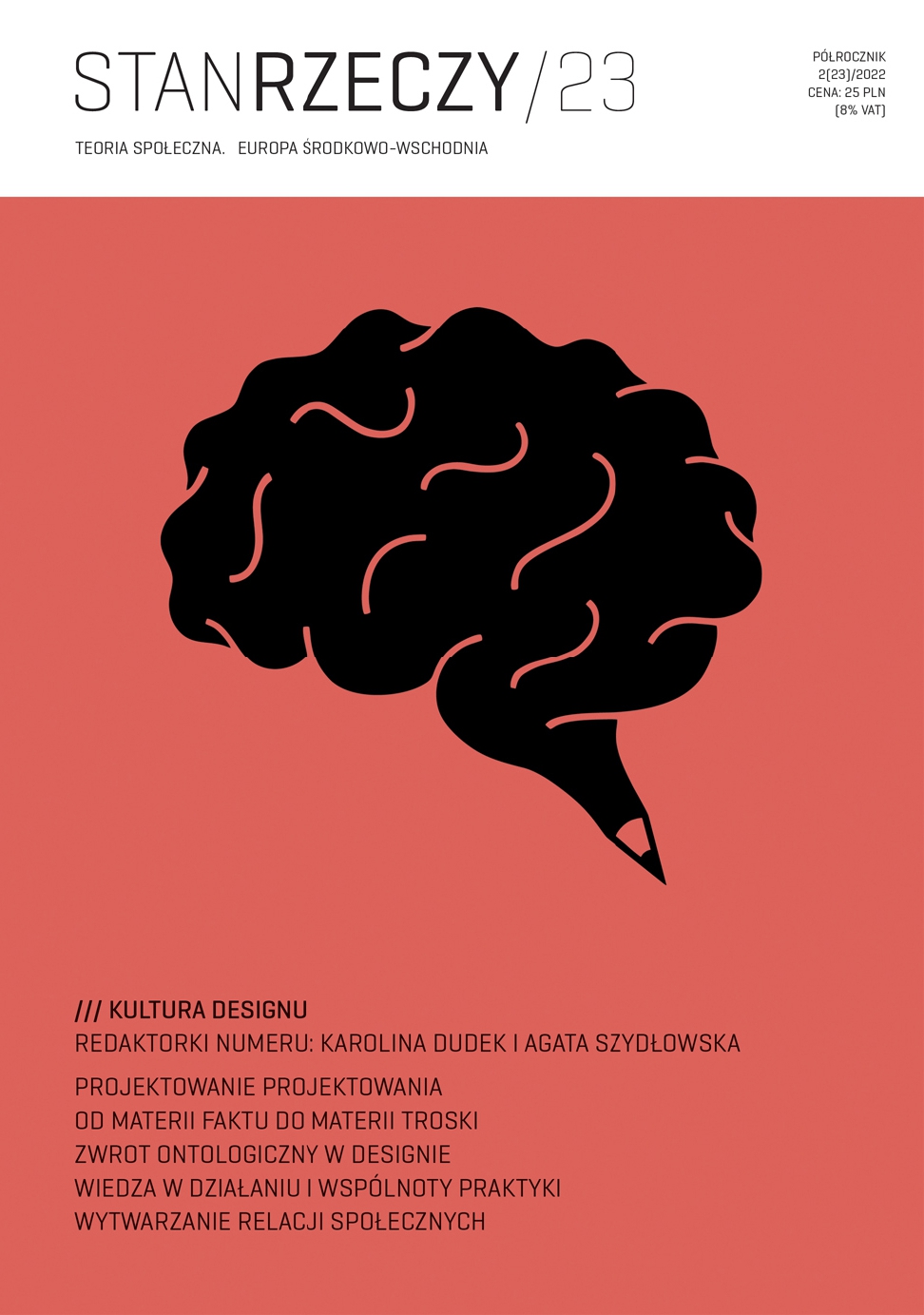Jak nie-projektantów uczyć projektowania
Why People Who Are Not Designers Should Be Taught Design and How
Author(s): Mariusz Wszołek, Krzysztof Moszczyński, Thomas LeweSubject(s): Social Sciences, Fine Arts / Performing Arts, Sociology, Sociology of Culture, Sociology of the arts, business, education, Sociology of Art
Published by: Wydział Socjologii Uniwersytetu Warszawskiego
Keywords: design; design education; history of design; change by design
Summary/Abstract: Currently, the system of design education faces the challenge of redefining the possible scope and ways of educating future designers. The complexity of the world around us, both in the technological and geopolitical dimensions, as well as tasks related to climate protection and public health, pose entirely new challenges to the practice of design. A distinctive voice in regard to criticism of design education is the “Future of Design Education” project, which was strengthened by Donald Norman and Paul A. Kirschner’s famous text titled “The Teaching and Learning of Design.” Norman and Kirschner noticed a fundamental deficit in the education of designers in regard to their compatibility with so-called modernity: its complexity and challenges. In addition, the authors pointed to the lack of an interdisciplinary environment of knowledge, competence, and skills in educating future designers. The “Future of Design Education” initiative is an open forum for the exchange of ideas and experiences in design education – its goal is to try to rethink and redesign design education. The mere appearance of such an initiative allows us to draw two conclusions: (1) the design community has noticed deficits in the education system; (2) the design environment is self-reflective when attempting change through design. Design has changed from being goal-oriented to being criterion-oriented – the object of design is no longer the object but its usability, accessibility, or serviceability. In design, the context of products, services, or communication becomes crucial – contemporary education in the field of design should therefore focus on a holistic approach to design methodology and should supplement education with social, technical, economic, and environmental contexts. The design community’s current discussion on redesigning design education seems crucial. However, it is closed to the external perspective – interdisciplinarity, which is emphasised at every step in the theoretical sense, although it is not commonly used in ongoing discussions. The text addresses an even broader issue: teaching design to non-designers, thinking about design as a superior problem-solving competence and seeing designers as moderators and animators of social change.
Journal: Stan Rzeczy
- Issue Year: 2022
- Issue No: 23
- Page Range: 115-135
- Page Count: 21
- Language: Polish

